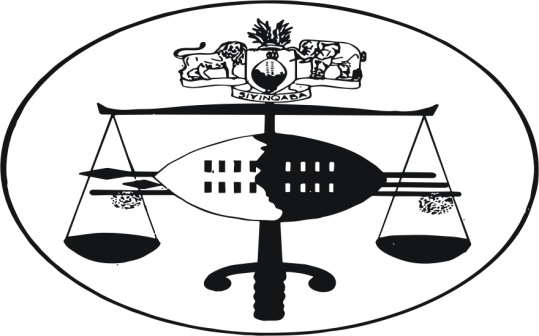6

IN THE HIGH COURT OF SWAZILAND
JUDGMENT
HELD AT MBABANE Case No.1628/19
In the matter between:
NOMISA ANGEL SHONGWE Applicant
And
SINCEPHETELO MOTOR VEHICLE
ACCIDENT FUND Respondent
Neutral Citation: Nomisa A. Dlamini V. Angel Shongwe (1628/19) [2019] SZHC 207(7th November 2019)
Coram : Magagula J
Date Heard : 17 October 2019
Date Delivered : 7th November 2019
[1] This matter came before this court under certificate of urgency and the applicant seeks substantive relief as follows:
“ 3. A Rule Nisi issue calling upon the Respondent to show cause on a date to be set by this Honourable court why an order in the following terms should not be made final:
3.1 The Respondent is interdicted and restrained from transferring the applicant to its Piggs Peak branch.
3.2 Prayer 3 and 3.1 be of interim and immediate effect.
4. Reviewing and setting aside the Respondent’s decision, as set out in the correspondence of the 27th August 2019, to transfer the applicant from the position of case Manager to the position of Branch Manager at the Sincephetelo MVA Pigs Peak Branch.
5. Costs of this application.”
[2] The application is supported by an affidavit of the applicant in which she states inter arlia, and in paragraph 4 there of that:
“ 4. This Honourable court is seized with jurisdiction to hear the matter by virtue of the fact that the dispute arose within the Kingdom of Eswatini and it is the only court that has review powers in terms of the constitution of the Kingdom.
4.1 Furmore, it is worth mentioning that the Industrial court of Eswatini advised me to institute the review proceedings before this Honourable court.”
The applicant first approached the Industrial Court which dismissed the application for want of jurisdiction to review
[3] In response to the application the respondent raised three points of law in limine. These points were on jurisdiction, urgency and requirements of an interdict. During arguments it became clear that the point on jurisdiction had to be disposed off first. I therefore intend to make a ruling only on this point.
[4] The respondent contends that his court has no jurisdiction to review any decision taken by an employer in the employment sector. Respondent maintains that it is only the Industrial Court that is clothed with jurisdiction to hear and determine employment matters by virtue of section 8 (1) of the Industrial Relations Act which provides:
“ The court shall, subject to section 17 and 65, have jurisdiction to hear, determine and grant an appropriate relief in respect of an application, claim or complaint or infringement of any of the provisions of this Act, the Employment Act, the Workmen’s compensation Act or any other legislation which extends jurisdiction to the court or in respect of any matter which may arise at common law between an employer and an employee in the cause of employment…..”
[5] I have already referred to the basis upon which applicant maintains that this court has jurisdiction to hear the matter. First of all I must point out that although this court generally has powers for review in terms of sections 151 and 152 of the constitution, this power is specifically excluded in cases where the Industrial court has exclusive jurisdiction. Section 151 (3) (a) of the constitution provides in this regard:
“ Notwithstanding the provisions of subsection (1) the High Court :
Has no original or appellate jurisdiction in any matter in which the Industrial Court has exclusive jurisdiction.”
It seems to me that in reviewing the decision of an employer exercised in the employment sector, the High Court would be exercising original jurisdiction in a matter where the Industrial court has exclusive jurisdiction. This would be contrary to the provisions of the constitution cited above. It seems abundantly clear to me that on this ground alone, this court has no jurisdiction to hear this matter. As regards the powers granted to this court by section 152 of the constitution those powers relate to subordinate courts, tribunals and lower adjudicating authorities.
As regards the powers granted to this court by section 35 of the constitution, such powers relate to the exercise of administrative power by administrative authorities. Employees are not administrative authorities.
[6] On the point that the Industrial Court has already declined jurisdiction and advised the applicant to approach this court for the relief sought, one needs only point out that the fact that another court has declined jurisdiction does not necessarily clothe this court with such jurisdiction. This court is accorded jurisdiction by law, not by another court.
[7] For the foregoing reasons the following order is made:
7.1 This court has no jurisdiction to hear and determine this matter;
7.2 The application is accordingly dismissed;
7.3 There is no order as to costs.

For Applicant : B. Ngcamphalala
For the Respondent : B. Gamedze